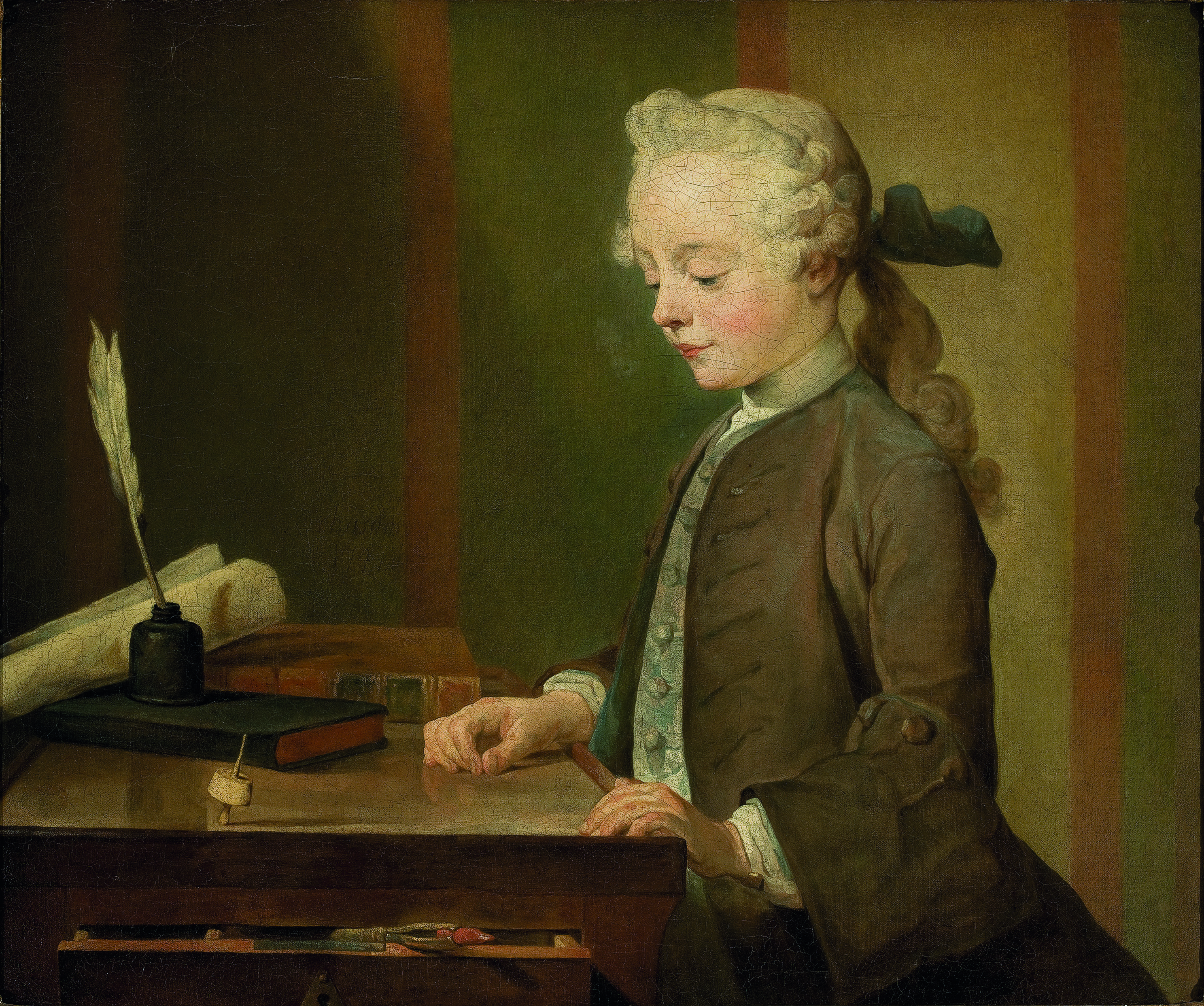 |
| Jean-Baptiste-Siméon Chardin : L'enfant au tonton, 1738; Louvre |
Chapter 3 of Doctor Faustus presents us Adrian's father : "... Jonathan Leverkuhn was a man of finest German Stamp..."
After a short physical description, an attempt is made to capture his mental being, by describing what preoccupies this man's mind when he is at leisure.
Smoking his porcelain pipe ofcourse and reading his ancient "mammoth family Bible, bound in smooth pigskin and secured with leather clasps...".
But besides that there was ..." another trend that in certain ages might have been characterized as a desire to speculate the elements. That is, on a modest scale and with modest means, he pursued studies in natural sciences - biology , and even chemistry and physics, too.
This dabbling in chemistry and especially with the natural phenomena of inorganic matter acting as if it were alive, gives the inocent experiments an alchemistic,caballistic hue.
"It all comes close to sorcery...'
This alchemistic spielerei is ofcourse a clear allusion to the Faustian theme.
Interesting enough in Rüdiger Safranski biography of Goethe, similar experiments are described as done by the young writer, who was, he too, looking for the mysterious transition of the mineral into the organic. ( Chapter 3; P 76 ). These experiments would later appear in Goethe's Faust as the search for the Erdgeist, the Earth Spirit, a force of nature competing in its creativity against God.
Turning the inorganic into something alive is nothing less than imitating the Creator, to play God.